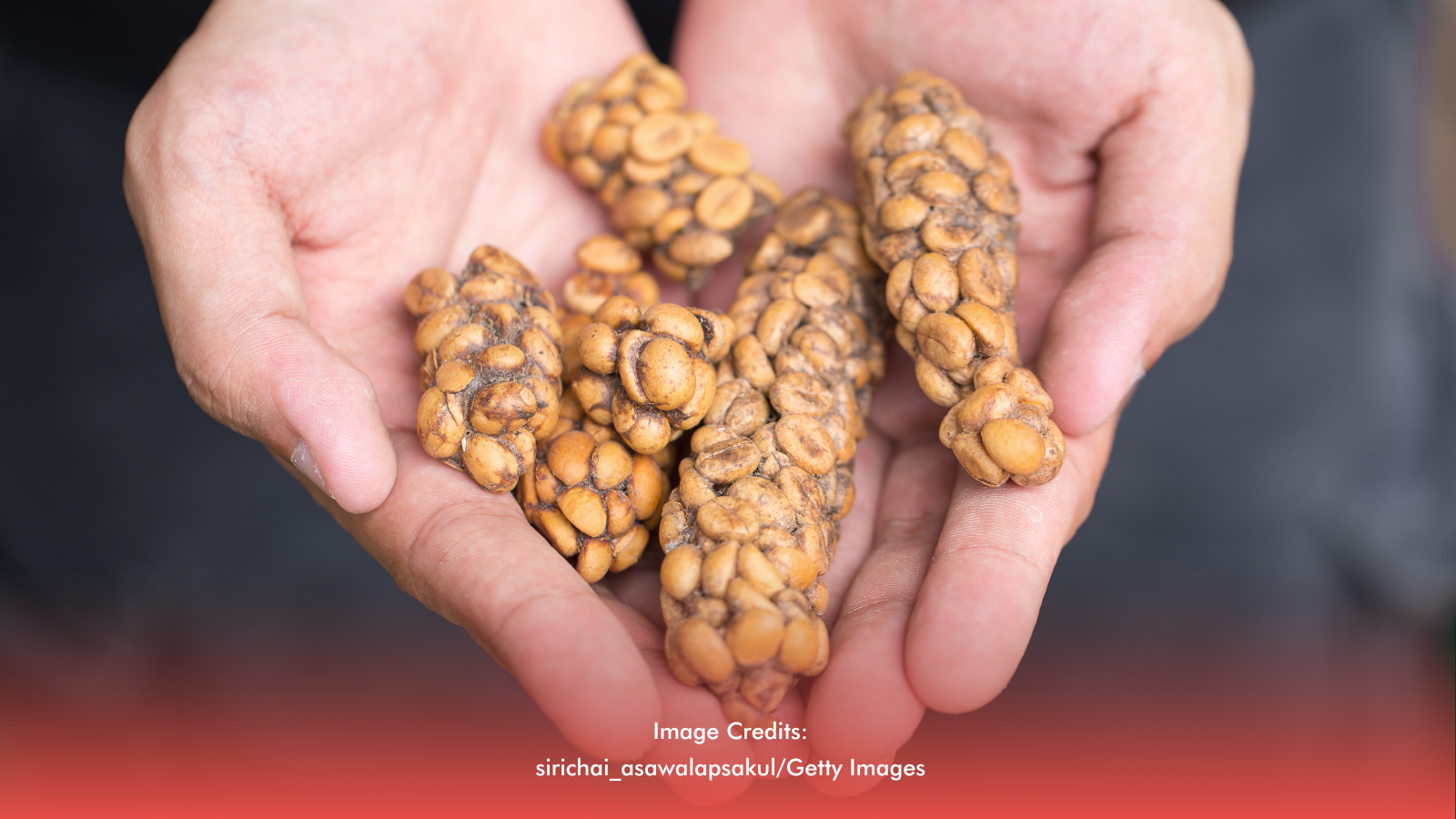The Philippines is home to a truly unique coffee experience known as Kape Alamid, or civet coffee. This rare brew is made from coffee beans that have passed through the digestive system of the native Philippine palm civet (Paradoxurus philippinensis), giving the beans a distinct flavor and aroma unlike any other coffee in the world.
RELATED: [#KapeTayo: Iloilo's Coffee Roasters and the Craft Behind Every Brew]
A Coffee Like No Other
Kape Alamid beans come from ripe coffee cherries eaten by wild Philippine palm civets. As the cherries pass through the civet’s digestive tract, a natural fermentation process takes place. This process alters the chemical makeup of the beans, resulting in a smoother, less acidic cup of coffee with rich, earthy, and complex flavors.
Kape Alamid is primarily harvested in the forested regions of Mindoro and Mindanao, where wild civet populations naturally thrive. Unlike some civet coffees produced in captivity, Philippine Kape Alamid is usually collected from wild civet droppings, supporting ethical and sustainable coffee harvesting practices.
What Makes It So Rare?
The rarity and high value of Kape Alamid come from the labor-intensive process of collecting beans from wild civets. This method requires patience and respect for nature, as harvesters must find and gather the beans from the forest floor after civets have naturally excreted them.
The unique fermentation process inside the civet’s digestive system transforms the beans to produce a smooth and aromatic coffee, with earthy, chocolatey, and caramel notes and very low bitterness. Moreover, many Philippine producers prioritize ethical practices by sourcing from wild civet populations instead of caged animals, addressing important animal welfare concerns, and promoting sustainability.
Brewing the Experience
To fully appreciate Kape Alamid’s distinct flavors, it is best brewed using methods that bring out its rich aroma and smooth texture, such as the French press or pour-over. Enjoying it black allows you to experience its subtle sweetness and complex profile, though adding a little milk can also complement its taste.
Kape Alamid invites coffee lovers to discover a unique cultural story that blends biodiversity, tradition, and community. Each cup reflects a rare natural process and the hands of Filipino farmers committed to maintaining a sustainable balance between wildlife and human livelihood.
So, if you’re up for trying a coffee that’s gone through the jungle’s most discerning barista—the civet cat—why not give Kape Alamid a sip? Just don’t ask too many questions about the “processing” stage!
RELATED: [#KapeTayo: How Specialty Coffee Became A Big Part of the Filipino Pantry]








